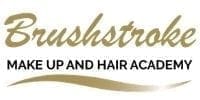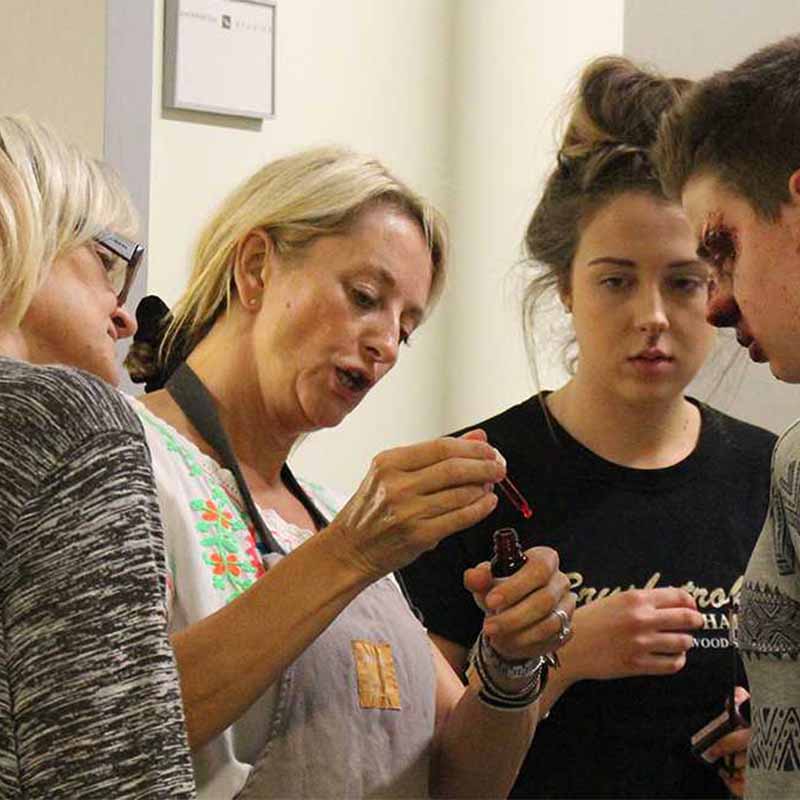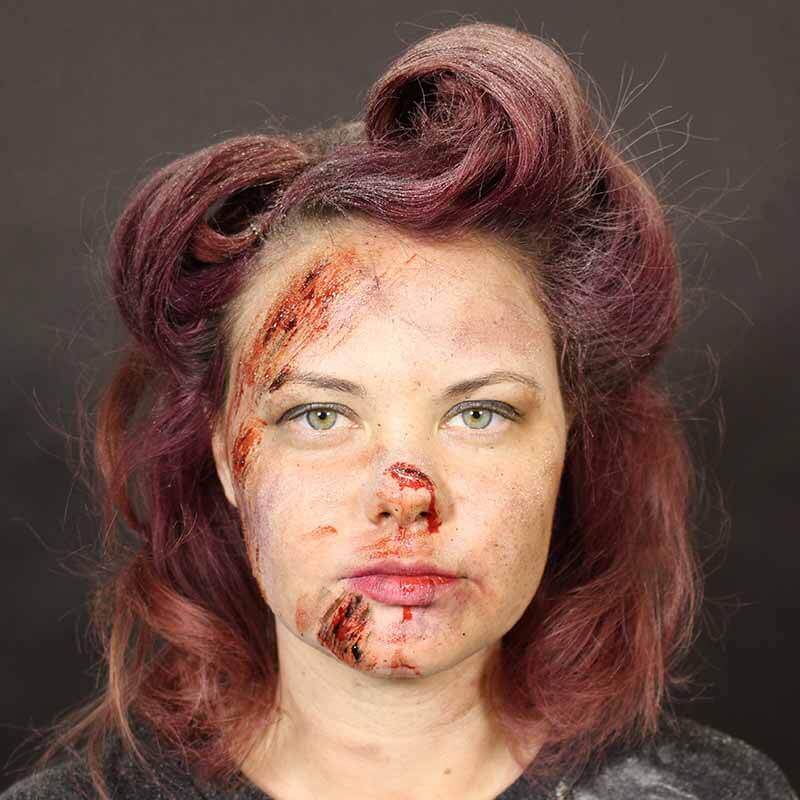History is at the heart of so many drama productions and not just for TV – film, stage and fashion are constantly imitating the style of previous eras. And then the subject of hair joins the discussion because it’s such a major part of getting ‘the look’ just right.
Being confident in your knowledge of historical periods and how to interpret them in both make-up and hair opens up a whole new world for you as a professional. The range work of work becomes broader and the opportunities for you to develop your own style and find your own niche are greater.
However, it’s not just about big hair and beauty spots.Period make-up training should introduce you to a much bigger picture…
Period make-up (and hair) opens doors
What immediately springs to mind when you hear the phrase ‘period drama’? Is it Poldark, Versailles, Vanity Fair? Of course they all do. But period drama isn’t all bygone eras. Peaky Blinders is a period piece spanning 1890-1930 while, the subject of The Crown (Her Majesty Queen Elizabeth II), is still very much alive today in 2018!
The point is that period history is important because it’s as popular and relevant as ‘contemporary’ drama, probably more so. Indeed period drama can be as close in time as 10 years ago because fashions (make-up, hair and costume) change so fast. And so often, modern life relies on interpretations of past eras – look how much ‘vintage’ influences our lives.
Being skilled, knowledgeable and confident enough to reflect a particular historical period in time is massively important wherever your interest lies and whether you work in TV, film, stage or fashion.
So if you think period make-up training is a bit ‘yesterday’, we hope you’ll think again for the sake of your flourishing career.
Hair – a major part of getting any ‘look’ right
Hair is a major part of getting any ‘look’ right. So as a make-up artist, being confident and competent with a range of hair skills are bound to be important. Of course, there are highly skilled hair and wig professionals employed to do specialist work in films and on TV and stage (some of them are tutors at Brushstroke). But, often, a production will want their artists to be skilled in both make-up and hair.
Being able to cut, style and manage hair (including facial hair) together with wigs, hairpieces and extensions makes you a valuable asset on any production. (See what Liz Armistead, Head of Make-Up on ITV’s Coronation Street, has to say on the subject of hair as an important part of the make-up artist’s skillset.)
When it comes to period drama, hair is just as important as make-up in achieving the level of authenticity that a director or designer is seeking in a production. (And don’t forget the many knowledgeable viewers we need to satisfy too.) A quick glance at a crowd scene and the ‘shape’ of the hair alone can help reinforce (or destroy) the look and feel of a period.
Studying hairstyles over the years is incredibly revealing about the period. For example, understanding why shorter hair became popular for women in the 40s. (Many were operating machinery on farms and in factories where long hair was hazardous so in came a shorter length and, with it, the classic waves, curls and rolls.)
Gaining confidence and skill with hair is very important and should be included in the syllabus for any kind of period make-up training.
Top 10 period tips for make-up artists
These are our 10 top tips to help you become a period make-up pro:
2. Build up your own library. Pinterest is a good way to search and file. But keep your bank of ideas on your own computer too as social media platforms have a nasty habit of removing functions overnight!
3. Don’t just use the internet for your research. For a start it can be misleading. Visit galleries, watch art and cultural programmes (the BBC has an extensive on-demand archive). Even more daring – read books! The broader you search you more you’ll find.
4. Research ordinary people. The ‘masses’ didn’t always have access to high fashion.
5. Know the kind of equipment and products available during the period you’re researching. It might make you approach your work differently to get the look right.
6. Be open-minded. You never know what might help you understand an era. A specific style of hair parting, a distinctive flourish of mascara.
8. Practise period make-up and hair as much as possible. Though we’re fans of the world of TV, film, stage and fashion, don’t forget other opportunities to practise, especially in the early days. Parties, weddings, maybe a celebrity or photographer seeking something completely different for a special ‘do’…
9. Start thinking as soon as possible about how you would create something. Don’t wait until ‘the day’ to work out how to achieve your look. You might need to think about combining materials to build a customised hairpiece, for example. Give yourself time to plan.
10. Finally, name a key look for men’s hair in the 1990s! (Answers at the end)
Period make-up training will help you get every look right
We hope we’ve made the case for period make-up training. Concentrating on work that involves just contemporary looks isn’t realistic because your opportunities will be slim. And not just in film and TV. Fashion channels the periods and even hair salons, party and wedding organisers are experimenting beyond the standard look of the day.
The more knowledge you gain about period make-up and hair, and the more comfortable you are creating them, the sooner you’ll be able to tune into a make-up designer’s thinking and gain their trust and confidence. On a production like Vanity Fair, you might be fitting an assortment of hairpieces to actors several times a day. Your period make-up training should help you get every single one just right.
So, invest in solid training to be a make-up artist – get specialist help to gain the knowledge, skills and confidence to create the kind of looks that get you noticed as a professional. Get training that truly empowers you.
(Key looks for men’s hair in the 1990s? The classic Fresh Prince flat top or frosted tips and spiky hair for boy bands of course!)
2 Year Makeup & Hair Course (BTEC, Level 3 Diploma)
Our most thorough training to prepare you for a career as an artist in TV, film, stage and fashion.
Film, TV & Stage
There are endless options for makeup artists working in film and TV, from Sci-fi movie sets, to West End shows and soaps.
2 Year Makeup & Hair Course (BTEC, Level 3 Diploma)
Our most thorough training to prepare you for a career as an artist in TV, film, stage and fashion.



